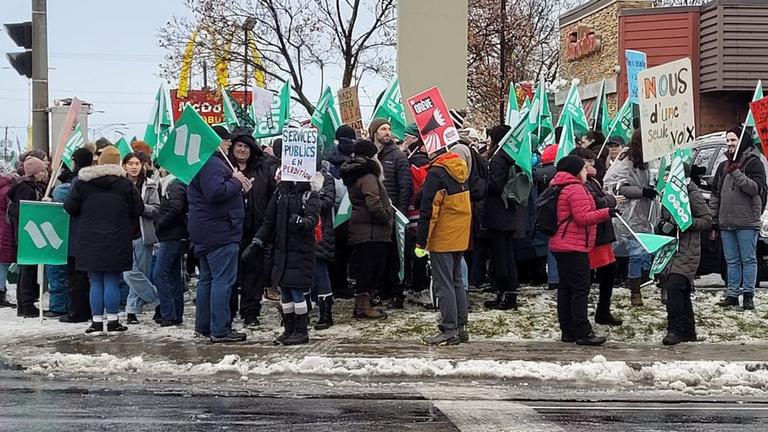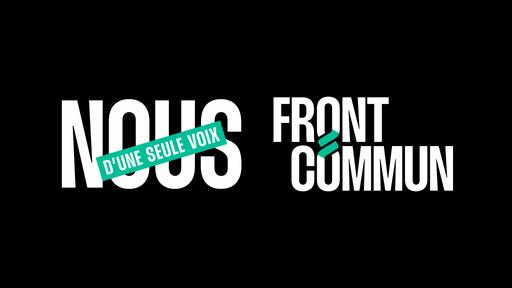
3 minute read
John Abbott College’s Remembrance Day Ceremony
Jessy Kelada
Student Life Editor
Advertisement
As the echoes of John Abbott College's poignant Remembrance Day ceremony continue to resonate, a deeper understanding of the event's planning and significance emerges, courtesy of an exclusive interview with Bill, one of the organizers His insights provide a behind-the-scenes glimpse into the thoughtful orchestration that went into commemorating the sacrifices made by veterans
The ceremony, held on November 9th, unfolded with a symbolic march from the college's agora to the football field, a route serving as a reminder of the veterans’ contributions With an audience of 1500 to 2000 people, this event saw the active participation of both John Abbott College and McDonald College (MacJac) students, along with local elementary schools, including Dorset and Pierre Elliot Trudeau Traditional elements such as bagpipers and a bugler added a solemn tone to the ceremony
What sets John Abbott College's observance apart is its commitment to actively involving veterans
Four veterans took the stage to read poems, providing a personal touch to the proceedings A former John Abbott student, now at McGill, also contributed by reciting a poem written during high school, emphasizing the enduring connection between individuals and the ceremony
Additionally, community support was evident through the donations collected from the distribution of poppies, which went to the St Anne de Bellevue Legion, ensuring its maintenance throughout the year For those unable to attend in person, the ceremony was streamed on YouTube, bringing broader accessibility
As the college reflects on the Remembrance Day ceremony, it stands as a testament to the community's commitment to remembrance, education, and gratitude for the sacrifices made by veterans in the name of freedom The insights from Bill's interview provide a deeper appreciation for the meticulous planning and heartfelt dedication that went into creating a ceremony that resonates even after the day has passed
edited by Jessy Kelada
The Biggest Strike in 50 years: An Interview with the President of the Faculty Association

Sean Richard Staff Writer
On November 6th, 420,000 public sector workers went on strike for one day to protest the Quebec government’s latest contract offer To advocate for better conditions, they plan on going on a three-day strike from November 21st to November 23rd Under the name of the Front commun, this group combines more than 4 unions: The Centrale des syndicats du Québec (CSQ), The Confédération des syndicats nationaux (CSN), The Alliance du personnel professionnel et technique de la santé et des services sociaux (APTS), and The Fédération des travailleurs et travailleuses du Québec (FTQ)
It is equally important to highlight that these public workers are not enthusiastic to quit their jobs for three days to go on strike Walking a picket line for many hours is an exhausting task The goal is to disrupt public sectors to make the government listen to your demand because they are not giving them and not listening to them fairly While it may seem like a nuisance to have public workers leave their positions for three days, the fact that their absence can cause such drastic chaos is only testament to how important and valuable their jobs are for the maintenance of our province
On the day of the strike, I went to the picket line at John-Abbott College to find out why our teachers were going on strike I spoke to Maria, a physics teacher at the college, and the president of the faculty association, which is the teacher’s union As the president, Maria’s role is local to John-Abbott, her union is but one of many in the CSN
These strikes come after failed negotiations for an increase in pay to match the inflation rate The rejected offer was a 10 3 percent increase over 5 years with an additional $1000 in payment to each worker However, union representatives have stated that this simply is not enough to support workers amidst the province's rising inflation rate
The government has stated that they are trying to find a fair balance between salaries for everyone, yet it is important to remind ourselves that just last year, Quebec politicians had voted themselves a 30 percent salary rise, and a 21 percent salary rise for police officers. If all the 420,000 workers decide to go on an indefinite strike it would be the largest one in Quebec in 50 year
The CSN elects 3 or 4 negotiators who engage in collective bargaining with the government, and they then relay information to the representatives who subsequently report back to the workers on the ground She explained that there was no other option for teachers and other faculty members to go on strike since, previously in earlier contracts, they had decided to receive a pay cut in relation to inflation to help the government with the pandemic
Furthermore, even teachers who might be a little more well off would still go on strike because the principle of the situation is about standing in solidarity with other teachers and faculty members who cannot afford rent or food. I spoke to different teachers where the consensus seemed to be that November 6th was meant to be a display that teachers are willing to go on strike for better contracts and will most likely go on strike the 21st to the 23rd With a government increasingly diverting funds from public services, it only seems natural that public workers feel the need to stand up and demand better conditions




